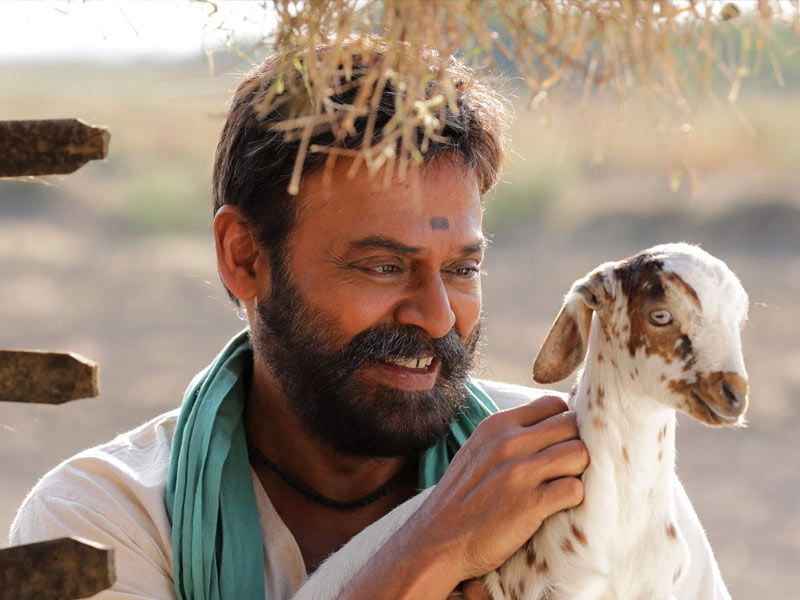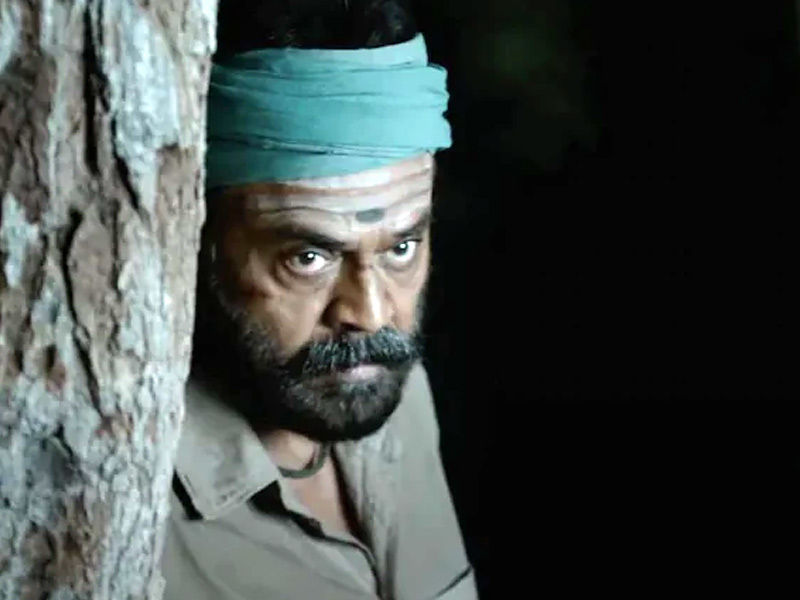Narappa, the year’s most anticipated Indian Telegu language film, is a remake of Asuran based on Poomani, Vekkai. Because of the ongoing pandemic, the film was distributed on the OTT platform Amazon Prime, which has given fans a fresh sense of delight. Suresh Productions and V Creations are responsible for the film’s production. D. Suresh Babu and Kalaipuli S. Thanu produced the film, which stars Venkatesh, Priyamani, and Ammu Abhirami. Brahmaji, Karthik Rathanam, Nassar, Rao Ramesh, and Rajeev Kanakala also appear in the film as supporting characters. Telangana, Andhra Pradesh, and Tamil Nadu were used to film the film.
The Story
Asuran, a Dhanush-starer released in 2019, was based on Poonamni’s novel Vekkai, which was translated to English as Heat. Narappa’s trailer reveals that it was inspired by Asuran. The majority of the sections are nearly identical to Asuran’s trailer, with only minor differences in language and no changes to the background score. The teaser transported viewers to a remote village where two families are attempting to flee the cops. Fast-paced battle sequences and discussions ensue, hinting at the film’s subaltern setting.
The Kilvenmani massacre, which took place on December 25, 1968, in which 44 Dalit persons were slain by a group led by their upper-caste landlords, motivated Narappa’s plot. The fatal occurrence spurred major changes in the rural economy and land redistribution in the area. It also sparked widespread calls for a shift in attitudes concerning caste. Narappa is mainly a vicious vengeance story about a father who demands his eldest son’s gruesome murder. The film examines the struggle between the wealthy and the poor and the mistreatment of various castes. It also discusses the struggle for survival and dignity.
Narappa is mainly a nasty vengeance drama about a father who needs his eldest son brutally murdered. The film examines the struggle between the haves and the have-nots, as well as the mistreatment of particular castes. It also addresses the struggle for survival and dignity.

The Theme
According to Sangeetha Devi Dhoondoo, Narappa is a revenge drama, and the protagonist man’s change is evocative of Baashha. The film examines a variety of socioeconomic concerns in India, including caste discrimination and the rich-poor divide. The film’s narrative is heavily based on the real-life Kilvenmani massacre, which took place in the Tamil Nadu town of Kizhavenmani in 1968.
Also read, Sarpatta Parambarai: Predictable yet Bearable
Movie Review
Narappa, an aging alcoholic farmer who is always willing to turn the other cheek rather than confront oppression against him and his peers in the village. The plot of the film revolves around a retelling of Asuran’s already-famous story. The release of the film comes just a few days after the 36th anniversary of the Karamchedu massacre. On July 17, six Dalits were slaughtered, including three Dalit women who were raped and killed. Many more were displaced by the overlords in the village. Because the slaughter is still fresh in people’s minds, the movie’s chain of events results in sorrow, carnage, and tears.
Narappa’s conduct is a result of his two rambunctious sons, Munikanna and Sinappa. Narappa may go to any length to safeguard them. Therefore his son was also unaware of his terrible, sad, and violent background. Despite owning most of the land in the hamlet, Pandusami, a wealthy landowner, wants to take their three acres of land to build his cement factory. When Munikanna, Narappa’s eldest son, refuses to put up with the village’s caste difference, he is encouraged by his mother and uncle. This sets in motion a series of events that culminate in Narappa’s efforts to save his family.

Srikanth Addala has strayed from his usual bright and cheery family dramas to promote the adaptation of Poomani’s popular novel. He has remained true to the Asuran’s viewpoint and has gone to great lengths to recreate the film scene by scene, dialogue by dialogue, and frame by frame. Even though the word “caste” is not used throughout most of the film, it significantly impacts the plot and how the characters are handled.
Caste discrimination is depicted in the film, as certain community members are seen to be treated unfairly and denied access to land, water, and even footwear. Narappa’s narrative is heartfelt since he has lost so much in his life and is constantly afraid of losing the slice of paradise he has created for himself. This is the fundamental reason why Narappa prefers to work things out politely rather than fighting the powers.
Venkatesh, aka Narappa, is responsible for most of the film. He also appears to be at ease in his portrayal of an old alcoholic patriarch. As Narappa, he is repeatedly underestimated by his peers and family in the film. However, the way he performed brought the situation to life. Venkatesh as Narappa is particularly in demand for emotional and battle sequences. It may appear a little weird to see him sharing the screen with the youthful Abhirami. The movie’s battle scenes are eerily similar to Asuran’s fight scenes.
Mani Sharma’s soundtrack also contributes to the film’s success. Overall, Narappa is a fantastic film that will take you on a roller coaster of emotions and thrills. For those who have seen Asuran, though, this may be familiar territory.
In any case, the film succeeds in delivering its message loud and clear. Venkatesh’s portrayal of Narappa isn’t that poor that it will let you down. With his part, he has tried his hardest to give them justice.





























